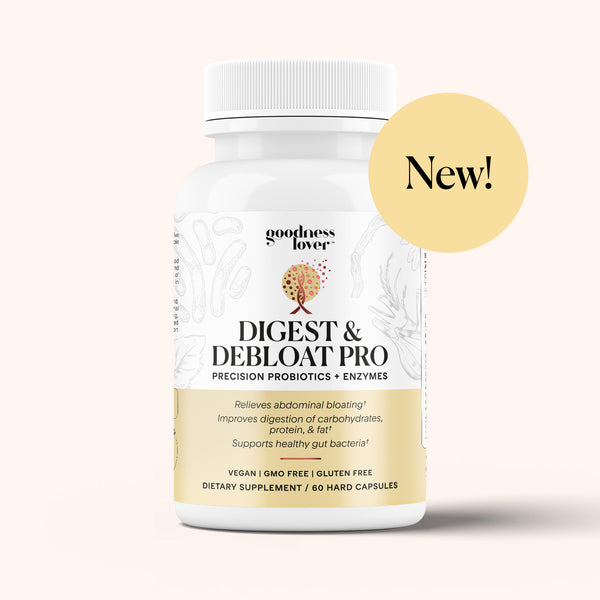What if the medication you're taking to heal your digestive system is actually making it worse?
Proton pump inhibitors—commonly known as PPIs—have become the go-to solution for millions suffering from heartburn, acid reflux, and GERD. You probably know them by brand names like Prilosec, Nexium, and Prevacid. These "miracle" acid-blocking drugs promise relief from digestive distress, and for many people, they deliver immediate comfort that feels life-changing.
But beneath this promise of healing lies a troubling reality that most patients never hear about. These medications, originally designed for short-term use, have created a web of dependency and side effects that may be far more dangerous than the conditions they're meant to treat.
The cruel irony? The very medications designed to heal your gut may be systematically destroying it from the inside out. From nutrient deficiencies that weaken your bones to infections that compromise your immune system, mounting evidence suggests that PPIs might be creating more health problems than they solve.
But here's the empowering truth: there are natural alternatives that work with your body's wisdom rather than against it, addressing root causes instead of masking symptoms. Your journey toward genuine digestive healing starts with understanding what's really happening when you pop that daily PPI—and discovering the safer path forward.
Table Of Contents:
The Scale of the Problem
The numbers surrounding PPI use are staggering: over 25% of adults worldwide take PPIs, making them among the most prescribed medications on the planet. In the US alone, omeprazole ranked as the eighth most prescribed medication in 2019, with more than 52 million prescriptions filled.
Clinical guidelines recommend PPIs for just 4-8 weeks, but the reality is drastically different. A quarter of users stay on them for over a year, with many continuing for three years or more. Even more concerning? Over half of all PPI prescriptions are medically inappropriate, yet patients continue taking them unaware of potential serious side effects.
What began as temporary symptom management has evolved into a global dependency crisis, with patients unknowingly trading short-term relief for potentially serious long-term health consequences.
The Hidden Cost: What Your Doctor May Not Tell You About PPI Side Effects
The pharmaceutical industry has positioned proton pump inhibitors as safe, effective solutions for acid reflux. Walk into any pharmacy and you'll find them prominently displayed with reassuring messaging about "24-hour relief" and "doctor recommended." What you won't find is mention of the growing body of research linking these medications to serious, sometimes irreversible health complications.
While your gastroenterologist may have mentioned that PPIs are "generally well-tolerated," the reality emerging from medical literature tells a more complex story. Suppressing stomach acid—while providing relief from heartburn—creates a cascade of unintended consequences throughout your body that can be far more serious than the original symptoms you're trying to treat.
Nutrient deficiencies
Your stomach acid isn't just there to cause you grief—it's essential for breaking down and absorbing vital nutrients. When PPIs dramatically reduce acid production, your body struggles to extract the building blocks it needs from food.
The most concerning deficiencies associated with PPI use include:
- Vitamin B12: Critical for nerve function and energy production
- Vitamin C: Essential for immune function and collagen synthesis
- Iron: Necessary for oxygen transport and preventing anemia
- Calcium: Vital for bone health
- Magnesium: Essential for muscle and nerve function
Without adequate stomach acid, proteins remain bound to these nutrients, making them unavailable for absorption in your small intestine. This creates a particularly dangerous situation for elderly patients and those already dealing with malnutrition.
Infection risks
Here's something that might surprise you: your stomach acid serves as one of your body's most important infection barriers. That burning sensation you're trying to eliminate? It's actually your first line of defence against harmful bacteria, viruses, and parasites.
When PPIs reduce this natural bactericidal effect, respiratory infections become more common, with studies showing increased pneumonia risk among PPI users. Without adequate stomach acid, bacteria that would normally be destroyed can survive and potentially migrate to the lungs.
Intestinal infections and other foodborne infections also spike, particularly dangerous C. difficile infections that can be life-threatening. The same protective acid barrier that prevents respiratory infections also keeps harmful bacteria from colonizing your digestive tract.

Bone health concerns
Perhaps one of the most ironic side effects of acid-suppressing medications is their impact on bone health—ironic because many people taking PPIs are older adults who are already at increased fracture risk.
Recent research reveals decreased bone mineral density among PPI users, with men showing particularly pronounced effects. Without adequate stomach acid, your body can't properly break down calcium-containing foods, leading to chronic deficiency that quietly weakens your skeletal system over years of use.
Kidney disease
The most sobering aspect of PPI research involves the serious complications that can develop after months or years of use—complications that often aren't connected back to acid suppression by patients or even their doctors.
Kidney disease represents one of the most serious concerns, with studies linking long-term PPI use to both acute kidney injury and chronic kidney disease. PPIs can trigger acute interstitial nephritis, a condition where the immune system mistakenly attacks the kidney's filtering tubes, causing inflammation and scarring that impairs the kidneys' ability to filter waste from the blood.
Dementia
Dementia risk presents one of the most alarming findings. Multiple studies are revealing a troubling connection between long-term acid suppression and cognitive decline, with the association strong enough that neurologists are now questioning whether that daily heartburn pill might be affecting more than just your stomach—it could be impacting your brain.
Liver disease
Liver complications become particularly dangerous for patients with existing cirrhosis, where PPI use can accelerate disease progression. The liver's ability to process medications and toxins becomes further compromised, creating a cascade effect that can worsen liver function. For those already dealing with liver disease, PPIs may push an already struggling organ past its breaking point.
Impact on the gut
These medications which are designed to treat digestive problems are actually damaging the very system they're meant to help. PPIs disrupt your gut microbiome, causing increased harmful bacteria and decreased beneficial species, frequently leading to SIBO—which causes the very symptoms that led people to seek treatment originally. Many patients then take additional medications to treat these gut symptoms, creating a cascade of interventions that moves them further from true digestive health.
Even more concerning, emerging research links gut microbiome disruption to autoimmune conditions, chronic inflammation, and a host of other diseases—suggesting that PPI use might be contributing to the very health epidemics plaguing our society.
The dependency trap
Rebound acid hypersecretion represents perhaps the most insidious trap of PPI use. When you try to stop these medications, your stomach often produces even more acid than before you started taking them, creating symptoms that can be worse than your original heartburn. This rebound effect can make patients feel like they can't survive without their PPI—effectively creating a dependency cycle that keeps people trapped on medications they desperately want to quit.
The question becomes: if medications designed to heal our digestive system are actually damaging it, what alternatives exist for those seeking genuine relief from acid-related symptoms?

Natural Alternatives That Actually Work
The good news is that nature has provided us with powerful, evidence-based alternatives that address the root causes of digestive distress while supporting—rather than undermining—your overall health.
Unlike PPIs, which simply suppress symptoms by shutting down acid production, these natural approaches work with your body's innate healing mechanisms to restore proper digestive function at its source.
Important note: If you're currently taking PPIs, work with a healthcare practitioner to gradually taper off rather than stopping abruptly. Sudden discontinuation can trigger severe rebound symptoms worse than your original heartburn, making a proper tapering protocol essential for safe transition.
Supporting Your Digestive System Naturally
The key to lasting relief lies in supporting your body's natural digestive processes rather than suppressing them. These gentle yet effective approaches can help restore proper stomach acid levels and improve overall digestive function:
Apple cider vinegar (ACV) before meals might seem counterintuitive when you're dealing with acid reflux, but many people actually suffer from too little stomach acid rather than too much. Taking 1-2 teaspoons of raw, unfiltered ACV in water 15 minutes before meals can help stimulate your digestive juices and neutralise stomach acid.
Digestive enzymes provide crucial support when your body's natural enzyme production is compromised. These supplements help break down proteins, fats, and carbohydrates more efficiently, reducing the digestive burden that can lead to acid reflux. Look for comprehensive formulas that include protease, lipase, and amylase.
Betaine hydrochloride offers targeted support for those with confirmed low stomach acid. This supplement provides the hydrochloric acid your stomach needs for proper digestion, helping to break down food more effectively, and encouraging the flow of bile and pancreatic enzymes.
Gentian and other digestive bitters have been used for centuries to stimulate natural digestive processes. These herbs trigger your body's own production of digestive juices, including stomach acid, bile, and enzymes. Taking bitters 15-30 minutes before meals can significantly improve digestion and reduce post-meal discomfort.
Soothing and Healing Your Digestive Tract
While supporting proper digestion addresses the root cause, these gentle remedies provide immediate relief while promoting long-term healing:
Soothing herbs like slippery elm, marshmallow root, and aloe vera create protective coatings along your digestive tract, providing immediate relief from irritation while allowing inflamed tissues to heal. Chamomile and fennel teas offer gentle digestive support, while ginger serves as a natural digestive stimulant that reduces inflammation and nausea. DGL licorice provides esophageal protection without side effects—chewable tablets before meals offer both immediate relief and long-term healing benefits.
These natural approaches work together to restore proper function, reduce inflammation, and support your body's innate healing capacity rather than simply masking symptoms.
But what about the underlying factors that contribute to acid reflux in the first place? Understanding and addressing these root causes can make the difference between temporary symptom management and genuine, lasting healing.
The Root Cause Approach
The fundamental difference between natural healing and pharmaceutical intervention lies in addressing why acid reflux occurs rather than simply silencing the symptoms. While PPIs act like putting tape over your car's check engine light, a root cause approach actually fixes what's broken under the hood.
Investigating underlying causes means identifying the real triggers behind your reflux symptoms—food sensitivities, chronic stress that disrupts digestion, or underlying infections like H. pylori or SIBO that contribute to digestive dysfunction.
Simple lifestyle modifications often provide more lasting relief than any medication: eating smaller, more frequent meals, avoiding late-night eating, and managing stress through meditation or gentle exercise can dramatically reduce symptoms while improving overall health.
Your Path Forward: Choosing Healing Over Suppression
The evidence is clear: while PPIs may provide temporary relief, their long-term use comes with serious health consequences that often outweigh their benefits. From nutrient deficiencies and increased infection risk to bone fractures and gut microbiome disruption, these medications frequently cause more harm than healing.
You deserve the whole truth. For too long, patients have been handed prescriptions without understanding the full picture—both the temporary relief and the potentially devastating long-term costs. This isn't about creating fear; it's about ensuring you have the complete information necessary to make choices that truly serve your health.
But there is genuine hope. A growing body of research supports gentle, effective alternatives that work with your body's wisdom rather than against it. These approaches don't just mask symptoms—they address the root causes of your digestive distress, offering something PPIs can never provide: the possibility of actual recovery rather than lifelong pharmaceutical dependence.
When you choose healing over suppression, you're not just treating acid reflux—you're supporting your body's natural capacity for optimal digestive health and long-term wellness.














What Do You Think? Comment Below: